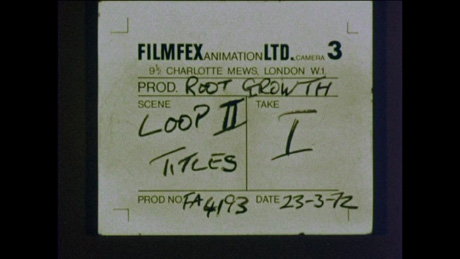This is the first part of a new series on Socialism to be published collaboratively with Shape Journal
Primitive Accumulation:
How Investors First Got Their Capital

At such a time as this, when Capitalism is being exposed for what it really is – it becomes increasingly important to recall just how it came to be – how our “entrepreneurs” accrued the wherewithall “to invest” and “support” money-making ventures of all sorts.
In other words, what forms of Primitive Accumulation produced the necessary Capital to fund a growing Capitalism?
Of course, it wasn’t anything like how it is portrayed today.
It was only possible via an accelerating concentration of available social wealth into much fewer hands, and this was first achieved by the regular application of bullying, violence and even war.
Causes
What were the motive forces behind these regrettably emergent systems?
One could easily say that it was simply down to the push for profits. Though this is certainly true, it doesn’t tell us much about what was done to achieve it. A profit motive has been around for a long time, yet these phenomena (at least as the prevailing dominant form) are quite recent.
What is it, therefore, that has brought about this significant change in mode?
The two most obvious starting points are globalism and technology.
Historical Constraints – Transport
After the start of the Industrial Revolution, which emerged wholly in the richer western countries like Great Britain, the work in manufacture had to be carried out at, or closely adjacent to, where the raw materials could be easily obtained.
Why? Because transport was the limiting factor – the price of a sack of coal could be doubled in moving it just a few miles! Also, the market had also to be within easy reach of the places of manufacture, and for the same reasons!
Such constraints were so dominant for thousands of years, that the vast majority of commodities that were traded over long distances had to be both small, and extremely valuable to make the process at all profitable.
Even with the post-industrial revolution development of empires, and the consequent procurement of both more distant sources of materials, AND new, expanding markets, the factor of transport still strangled the growth of trade to a major degree.
Historical Constraints – Primitive Accumulation
NOTE: It has always fascinated me that the most important factor in getting such processes off the ground, was the necessity for the centralisation, and concentration of wealth, and in particular the major role of direct theft in this process.
It did not surprise me that the result of the fall of the economies of Eastern Europe led to the emergence of gangster groups such as the Russian Mafia, and the direct stealing of state-owned resources to put into the hands of private individuals to re-establish capitalism.
Such methods of primitive accumulation were indeed the only ones open to the local, and potentially national ruling class. Otherwise such a re-establishment would have had to be funded externally, probably by the USA.
The same thing, of course was universal at the beginning of the modern era. Everybody has heard of the “enclosures”, where rich landowners simply stole the “common” land from the peasants, put a fence around it and used it for producing sheep and wool. Also similar sources were used to initially fund pirates and “privateers” to steal enough from the Spaniards (who themselves stole their gold from the civilisations of South and Central America), to allow new “capitalist” undertakings to be initiated.

Does it surprise you what the Zionists do to obtain Palestinian land in the Middle East?
It is essentially the same process – but given a more “legal” look by the fact that the forces of the state of Israel make these processes happen, and even buying up some such properties well below market value, much easier. Earthmovers, Tanks, Tractors and guns can easily change the rules of the game can’t they?
The biggest contradiction in the early years of the industrial revolution was the concentration of wealth at the same time as the reduction in the standards of life of the “required” local working class.
NOTE: Let me make an important point about the myths of rural deprivation that are usually put forward in this context. It is suggested that the concentration of rural peasants into an urban working class “rescued” them from acute deprivation in the countryside. The response must be, “NO!” But, in saying that it does not mean that there wasn’t any rural deprivation, indeed there was.
But it was NOT a feature of rural life. It was a feature also of nascent capitalism, in its first real theatre of operations – agriculture. The process started with the “enclosures” – the stealing of the common land, and the impoverishment of the rural peasants, who were then forced to work for the “thieves” who had stolen their livelihood – the rural aristocracy. The great impoverishment and degradation of the rural work force preceded the main rampant growth of urban industrialisation, but was generated by the same source of primitive accumulation – the wealthy landowners. AND these complementary processes overlapped to some extent.
At one particular period it was to the owners’ advantage to drive the peasants from the countryside, and drive them into the cities as factory fodder. They were an important source of extra wealth at both stages of the primitive accumulation of capital.
It is not for nothing that the “dark, satanic mills” and degradation were contrasted by privileged dreamers, with the idyllic lives of those in the pre-industrial societies such as South Sea Islanders.

Globalisation
Of course, to talk about globalisation as being entirely new is also incorrect.
The need to find raw materials, at low prices, and new markets for the ever-increasing supply of goods, drove the expansion of the capitalist system from its outset, and dramatically changed the world. But transport developments and technological innovations accelerated the pace and content of these changes, and led ultimately to the export of the manufacturing process itself, AND the import of food and products in an altogether new scale. Quantity changes led to changes in quality, and NEW upheavals became regular, and indeed, almost continuous.
I well remember the “reason” for shutting many viable coal mines in the UK, was given as the impossibility of competing with cheap imports from abroad (e.g. Poland), whereas, only a few years later, the very same Polish mines are being shut with the same kind of excuse.
NOTE: The Polish experience is somewhat different, as the nationalised industries had somehow to be got into private hands for a song (primitive accumulation) in order to re-establish capitalism in Poland.
Transport has radically changed many aspects of the sources of perishables such as food. Coupled with refrigeration and wide-bodied jets, it is possible to import certain food stuffs CHEAPER than getting them locally. In addition climates more conducive to mass production in agriculture, plus powerful and large machinery (impossible to use in many traditional contexts), and sophisticated bulk transport systems, have brought prices down.
Small scale personal-use production in many developing countries, has been largely (and sometimes forcibly) replaced by large scale production of single crops (sugar, cotton, cocoa etc.) at very low prices and exclusively for export. This process has moved so far that such subsistence farming has almost vanished, and the population (when they don’t get jobs on the plantations as workers) find that they cannot feed themselves and have to rely on bought-in produce, when they can afford it, and foreign aid, when they cannot, or most likely of all, move into the fast growing cities to increase their chances on all these fronts.
Finally, the constant march of technology (particularly information technology) has led to automated, computer controlled manufacture, such that, with the appropriate machinery, cheap labour can easily be trained to do what once was only possible by skilled workers (on a much higher wage) in the so-called advanced countries.
Even Help and Advice services are now incessantly exported to “cheap-labour” countries. Almost all the cold-call phone salesmen and help lines for many products are now abroad – first in Ireland, but latterly in India, and other ex-colonial countries where English is widely used.
The sort of advice that you can get from these sources is of a characteristic and very narrow type!
What the workers are “trained” to deal with is wholly determined by the frequency with which the set of questions is generally asked. Frequently Asked Questions (FAQs) are even automated via the Internet so that they require no human interface at all, and even when you do get hold of an “advisor” on the phone, in Bombay or wherever, you will many times only get help on the very commonest problems – those encountered by the largest number of ill-informed callers
Specialist, detailed and unusual queries are often NOT addressed by these systems. Statistics is the base, and the excuse!
“80% of our callers get immediate help!”, we are told. Yes, help like, “Have you turned on?”, or “Have you checked the fuse”, plus a full set of similar and occasionally slightly more ambitious levels. Complex problems are attempted (sometimes), but only on phone lines that are extremely expensive (some would say prohibitively expensive!).
It is, as I said at the beginning of this section, determined by profit, but the situation has substantially changed, and the employers have been extensively empowered in the last few decades.
There was a time when my stepfather could legitimately hold his employer to ransom with his irreplaceable skills, and demand good wages for the work of his “gang” (he worked in a major foundry in Manchester). They would regularly sack him, then re-employ him, on his own terms, when they couldn’t do what he could do. But, those days are gone!
The skills are replaced by technology, both in methods, control and materials, and the availability of, and access to, adequate (and cheap) labour forces across the world, means that bargaining power by workers with something significant to sell has been well nigh extinguished, if only organised locally.

Primitive Accumulation:
The Chicken-and-the-Egg
Capitalism is sometimes hard for people to grasp, because it has an inherent contradiction at its very heart. As distinct from prior economic systems, where individuals, small groups or even states gathered sufficient funds to finance various types of scheme, the new feature of Capitalism was to draw in initial funding from a much wider area of subscribers on the basis of regular, and where possible, lucrative returns.
When economic activity was essentially local, such centralisation of funding was not necessary due to the smallness of the potential market, but the extending reach of markets elicited larger scale production, and such undertakings required substantial capital investment to initiate the process.
Early on (really in a pre-capitalist era) investments were in daring trading voyages to exotic sources of luxury goods, but as the wherewithall for wider scale production and distribution became available, the classic capitalist form of investment in manufacture gradually emerged.
By the time of the industrial revolution the requirements for manufacture grew at an alarming pace. Buildings, tools, machinery, raw materials and labour were all necessary, in a particular place at a particular time. And all these things must be in place prior to a final acquisition of payment for the resultant goods. Without mechanisms to concentrate the required Capital to finance such undertakings, it became the famous impossible case of “pulling you up by your own bootlaces”. A classic chicken-and-egg situation!
It is therefore not surprising that pre–capital seats of accumulated wealth were the first ports of call for acquiring financial backing.
Feudal Focuses
The landowning aristocracy and royalty were initially often the only suppliers of capital, via their established means of wealth accumulation – via rents or taxes!
But this was a very limited source, and could only finance a tiny fraction of the possible set of profitable enterprises. It is not surprising that the supporters of the new, capitalist way of gathering the required funds should in their day have been quite revolutionary.
They considered the old feudal system to be the major brake on the development of enterprise, and were an important part of the forces that coalesced into the English Revolution in the 17th century, which not only overthrew the old system, but also separated the King’s head from his body!

New Methods of Accumulation?
Another source of funding was certainly required.
It was clear what it should be. It required sufficient investment to initiate the process, and then the return on such investments, to re-invest into the next stage. Successive and widening iterations of this process would multiply up the funds available, and vastly increase the amount of enterprise and production. But, it wasn’t simply an alternative mode of economy that people with money to invest could simply choose to use.
The old economic system directly intervened to prohibit such an independent process. The old powers of royalty and aristocracy had a stranglehold on trade (and, of course, on the accumulation of wealth). And such a small number of privileged sources, or well-connected entrepreneurs were always going to be insufficient. “
If we don’t do it, someone else, perhaps in another country, will!” (.. and presumably “We, will have missed the opportunity!”). To significantly increase the amount of capital available AND the number of people with sufficient disposable resources to “risk” on a much wider range of enterprises – new methods were clearly necessary. In addition to breaking the stranglehold of the old aristocracy on wealth, other independent methods of “primitive accumulation” had to be developed.
The most important such method was what it had always been for millennia – THEFT!

Killing people and stealing their wealth was a very efficient method of primitive accumulation. From mounted hordes of nomads out of the steppes, to Viking raiders and Elizabethan privateers, the really effective method had always been “robbery with violence”. Most of the early historical regimes in the Middle East were the result of warlike conquering of the productive farmers and civilisations of the so-called Fertile Crescent. Hittites, Assyrians, Persians and the rest were all successful accumulators, but they knew nothing of using their ill-gotten gains as a primer for further acquisitions and enterprises. It was, on the contrary, simply a matter of dividing the spoils.
The result of their accumulation was simply consumption.

It always amazes me how the uses that these people put their wealth to are universally commended as “civilisation”. The “consumption” of these resources in the building of palaces, country residences, and even “Hanging Gardens” etc., could only move forward if the robbery was ongoing.
So the building of empires was necessary to continue the process. Once this was no longer possible, some form of collapse was inevitable.
In the more modern era we are considering, the primitive accumulation was used in a different way.
Of course, we cannot leave Primitive Accumulation without including what was probably the most important contribution over a considerable period – the crucial and highly lucrative role of Slavery in the process. It too is a form of robbery with violence, but of people who were then sold and put to work (without pay), to ensure a substantial return upon their cost when bought.

And these slaves even reproduced to deliver an ever-growing slave population at absolutely zero extra cost. And, to complete the picture, the real giants of the rise of Capitalism were substantially funded by the accumulation provided by the Slave Trade, for these slaves, in the main, produced highly saleable products.
The triangular Route from Britain to West Africa (for slaves), then crossing the Atlantic to the West Indies and America (to sell their living assets) and also to pick up valuable cotton and sugar, to take back and sell in Britain. And this was a major generating engine for colossal wealth, and available for investments in the burgeoning Industrial Revolution back home in Europe.
Theft – for investment
A good and revealing story to consider is the use of identical mechanisms by organised crime in the USA. Once more we have “robbery with violence” as a means of primitive accumulation, but then the crime bosses realised that a great multiplication of wealth would be involved if these resources were not simply consumed, but used to accumulate at an ever increasing rate. So they invested in legitimate enterprises.
Crime gave them the necessary wherewithall to buy into Capitalism.
Now, such a consideration of the effects of Primitive Accumulation on the growth of Capitalism, cannot be sufficient, when addressing the situation as we are experiencing it today. For, there are now no longer any such “easy” means of pump-priming this system, that ever needs such injections, never actually reaching a self-sustaining level, as its incentive is always to increase profit. And, the impossibility of such an objective shows itself at regular intervals, as the system runs out of steam and suffers unavoidable recessions. The modern methods have always involved the extraction of surplus value (profit) from the actual producers of the traded wealth – the workers in the factories and in the fields, but the unavoidable contradiction between necessary repression and the need for ever bigger markets, not to mention the ever deceasing rate-of-profit, has meant that NO permanent solution within Capitalism will ever be possible. It consumes its own resources, and hence must continually lay waste to a greater proportion of the planet, until the final, fatal slump occurs.
Jim Schofield
February 20, 2012
Categories: History, Ideas, Philosophy, Politics, Revolution, Sociology, Writing . Tags: capitalism, socialism . Author: shapejournal . Comments: 4 Comments




























